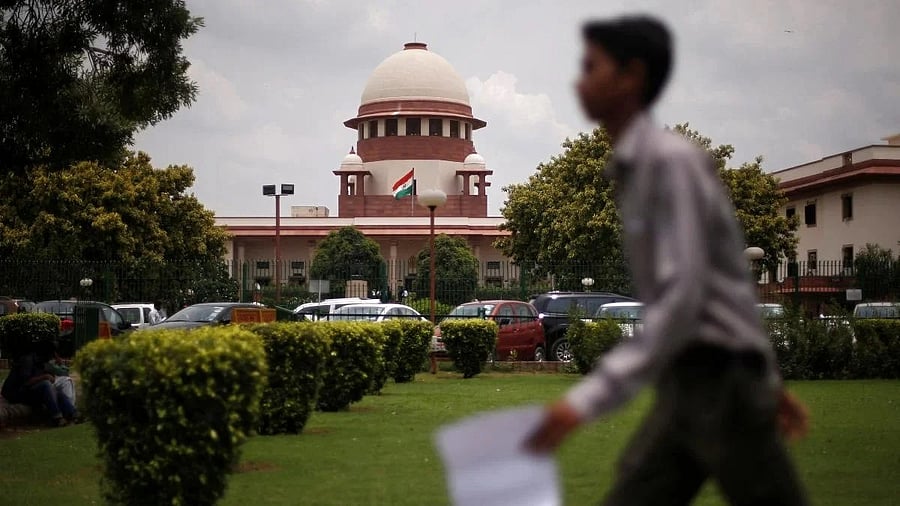
The Supreme Court of India.
Credit: PTI Photo
New Delhi: The Supreme Court has said that the institution of marriage is rooted in dignity, mutual respect and shared companionship, and when these foundational aspects are irreparably lost, forcing a couple to remain legally bound serves no beneficial purpose.
A bench of Justices Vikram Nath and Sandeep Mehta granted divorce to a man using the power under Article 142 of the Constitution, after noting that the couple have been living separately for the past 16 years.
Due to complete detachment and the prolonged estrangement, there has been an irretrievable breakdown of the marital bond, which cannot be mended by any means, the court said.
Moreover, the court noted, both the parties have spent the prime years of their youth entangled in this marital discord, which has persisted for more than the last fifteen years.
In the case, the marriage was solemnised on May 07, 2008 according to the Hindu rites and ceremonies. A child was born on March 25, 2009, who remained in the care and custody of the respondent-wife. The parties started living separately since October 2009 itself due to conflict.
The Family Court by its order on November 23, 2017 dismissed the appellant’s divorce petition holding the allegation of cruelty against the respondent- wife as well as her wanting transfer of the ownership of the property of his mother remained unsubstantiated.
The Delhi High Court, by its order on February 26, 2019, affirmed the decision of the Family Court and dismissed his appeal.
Considering his appeal, the court noted that the appellant husband has been acquitted in the case of dowry harassment and cruelty alleged by the wife against him and his family members.
The court relied upon its judgment in Amutha Vs A R Subramaniam (2023) which stated the welfare and dignity of both the spouses must be prioritised, and that compelling a dead marriage to continue only perpetuates mental agony and societal burden.
In the present case, the bench opined, it was as clear as a day that the continuance of marriage would only fuel animosity and litigation between the parties, which runs contrary to the ethos of matrimonial harmony envisioned by the law.
"This would ring true even more in the light of appellant’s and his family members’ acquittal in the cruelty case filed by the wife. It cannot be expected by the appellant to now continue in a marital bond with the respondent, a partner who had filed and fought a false case against her husband and in-laws," the bench said.
The court felt, it is in the best interest of both the parties and their minor child that they be allowed to lead their lives independently and peacefully, free from the shadow of prolonged and futile legal battles.
The court granted the relief of divorce to the parties on the ground of irretrievable breakdown of marriage. It, however, enhanced the monthly sum of maintenance granted by the family court to the wife and the child from Rs 7,500 to Rs 15,000, as the appellant worked as a clerk in a private firm and the respondent was a homemaker, independently taking care of the 16-year-old son.
